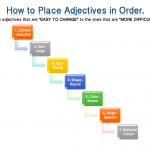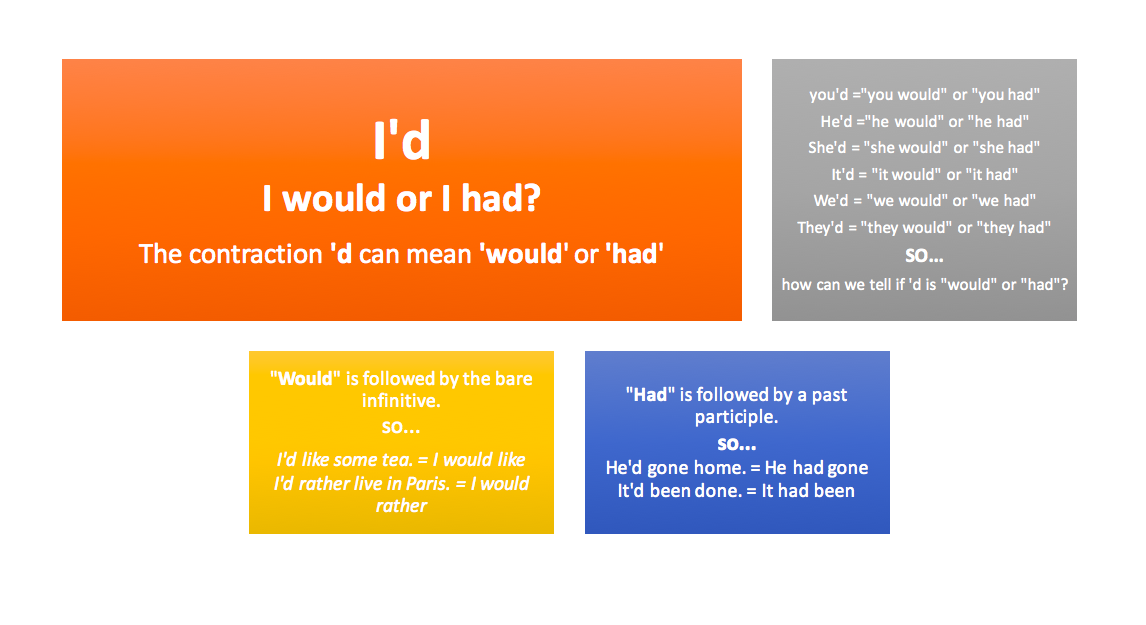The order of the adjectives in English can be a bit tricky when learning to speak, read or write in English, especially for Spanish speaking students. Here is a brief diagram of the order we put them in. Click to download the pdf file How to Place Adjectives in Order . Leer más →



